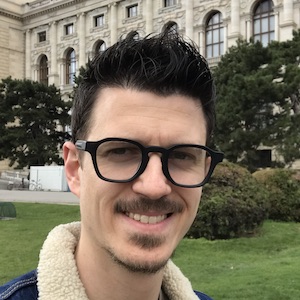
MSCA PF Fellow: Gabriele Andreatta

MSCA Fellow: Gabriele Andreatta
UNIPD Supervisor: Tomaso Patarnello
Department: Comparative Biomedicine and Food Science
Total Contribution: Euro188.590,08
Project Duration in months: 24
Find out more: https://cordis.europa.eu/projects/en
Gabriele Andreatta is an Evolutionary biologist fascinated by how the endless forms of animal reproduction evolve, and how they are synchronized with environmental cycles. He received his Ph.D. in Genetics and Molecular biology of Development in Padua, working in the Chronobiology lab led by Prof. Rodolfo Costa. Here, using Drosophila as a model, Gabriele investigated the molecular dynamics which arrest reproduction when animals face unfavourable seasonal conditions. To perfect his training, during the last year of his Ph.D., he visited Prof. Thomas Flatt´s lab in Lausanne, which primarily focuses on the molecular basis of life-history traits evolution. Back in Padua thanks to a Junior Research Fellowship, he deepened the relationship between the circadian clock and seasonality, exploring how clock genes affect long-term developmental and reproductive programs. He then joined the ERC-funded lab of Prof. Kristin Tessmar-Raible at the University of Vienna for his postdoc. Along this new journey, using the marine annelid Platynereis dumerilii, he investigated the mechanisms synchronizing animal reproduction with the lunar cycle, and the evolution of the hormonal dynamics orchestrating sexual maturation. In 2023, Gabriele has been awarded an MSCA Postdoctoral Fellowship for his project MOM-OR-DAD, where he plans to shed light on the molecular and genomic basis underlying the evolution of divergent reproductive strategies and lunar-regulated reproductive rhythms. For this, he will take full advantage of the extraordinary diversity of reproductive modes displayed by closely related marine annelids. The project will be supervised by Prof. Tomaso Patarnello at the Department of Comparative Biomedicine and Food Science.


